Family doctor shortage creates stress for patients, communities — and physicians
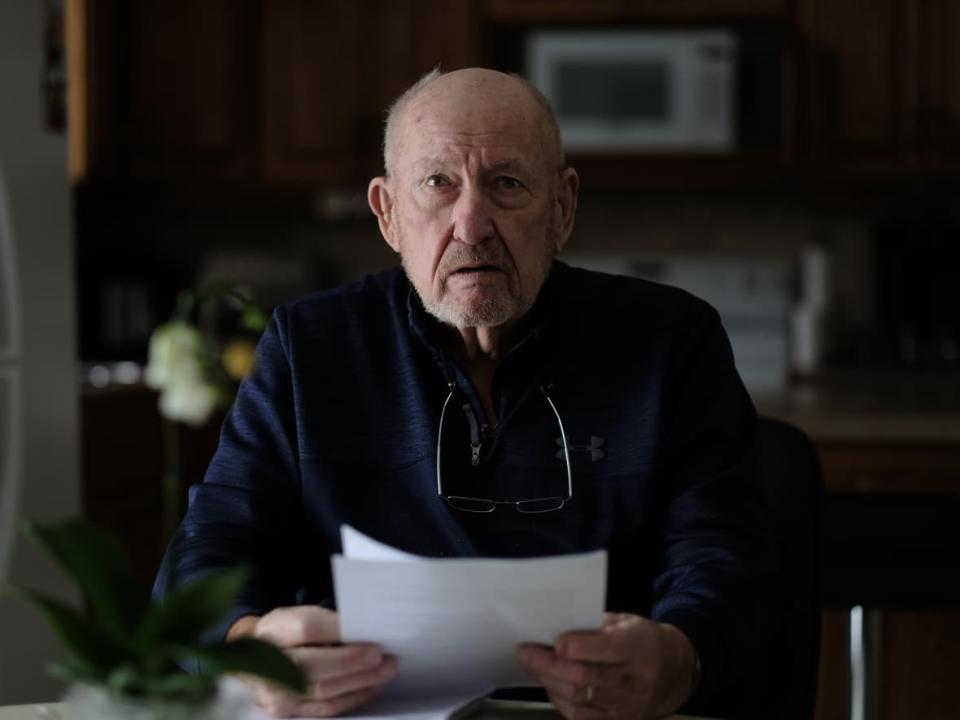
For the first time in his 81 years, Hugh Greenwood doesn't have a family doctor. And so almost every day, in a routine that has been going on for months, he sits at the kitchen table in his home in Owen Sound, Ont., and tries to find one.
"I've been phoning family physicians almost everywhere within a two-hour drive of here, and there's nobody taking new patients."
Greenwood has hypertension and a thyroid condition. His previous doctor left him with extra medications before moving away last July, but Greenwood only has a few months supply left.
"When I open the pill container, I'm thinking what's going to happen if I don't get my renewals," Greenwood said, spreading his remaining medications on the table in front of him.
"I know that my blood won't be thin enough to stop clotting, and I probably won't be here that long."
Greenwood understands he could go to a walk-in clinic and see a doctor about his renewals, but at his age he says he doesn't want a stopgap measure. Greenwood worries that not having a family doctor will shorten his life.
"I have grandchildren that I care about. I have a wife that I care about," he said. "And I would like to be here for a while."
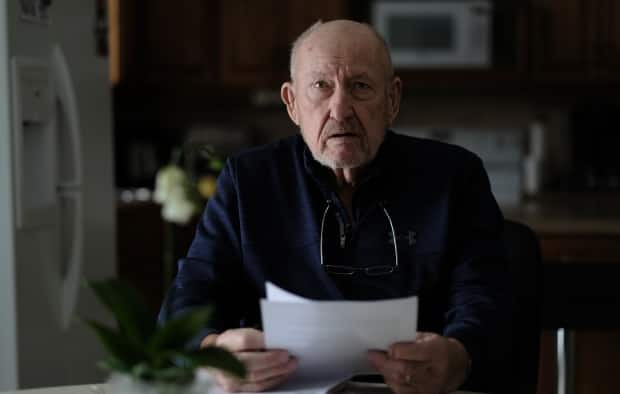
The two counties in the surrounding area where Greenwood lives have a total population of 164,000 people – 31,000 don't have a family doctor, according to the Owen Sound Family Health Team.
And three local family physicians are set to retire in the next four to five years.
"I've been promised universal health care," Greenwood said. "And I feel I've been lied to.
"It bothers me that we keep on hearing that we have universal health care. And I think 'I don't think so.' All of a sudden, there are cracks in our system and it's not universal health care anymore."
WATCH | Hugh Greenwood, 81, calls a clinic looking for a family doctor:
The shortage of family physicians stretches across the country, with the latest figures suggesting that more than 6 million Canadians don't have one. For that reason the competition to attract doctors to communities is fierce.
Take Marmora, Ont., for example. One of only two doctors at the local health clinic in the small town, Dr. Emily Callery, estimates 1,000 of the 4,300 people in the area are without a family physician.
She says the search for another doctor has dragged on for two years. She also showed CBC News what the community offers to try and persuade a physician to come to the town.
"There are two apartments just above our clinical space," she said, pointing out the second story window of the building. "It actually overlooks the Crowe River – so you're really waterfront! It's quite nice."
Any doctor who agrees to work in town can live in one of the apartments rent-free for up to five years.
"It's a great opportunity," Dr. Callery said, continuing her pitch. "I think a lot of physicians could also just see it as a place to land, to get their feet settled, which is a huge savings, a huge incentive."
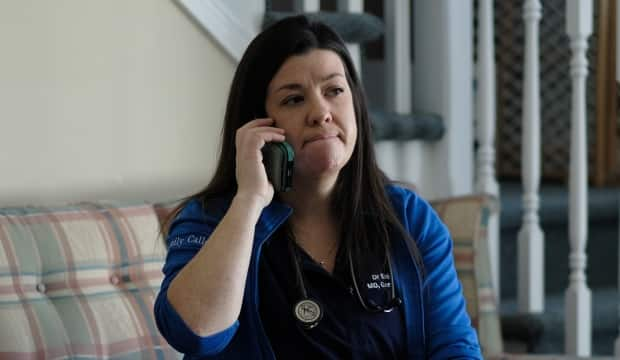
It was because of the incentives that Dr. Callery originally decided to practice in the area five years ago. However, she says she never thought her duties would include recruiting other physicians.
"You're already trying to do your day-to-day clinical work and your administrative work," Dr. Callery said. "I think it does add to that stress, to feel like you have to also be wearing a recruiter's hat."
The need for a new doctor in Marmora is so critical that besides an apartment, the offer includes a substantial cash incentive. There's a $100,000 signing bonus if a physician agrees to move to the area for five years – matched by another 100,000 from the local county.
Meanwhile, the Ontario government would offer a physician another $86,240 over four years through its Northern and Rural Recruitment and Retention program.
That's $286,240 in total – and still Dr. Callery can't find anyone to take the job.
She shrugs. "It does speak to just the overall demand and supply mismatch."
WATCH | A giant billboard, one of two located near Owen Sound, Ont., reads 'Physicians, we want you.' A volunteer organization put up the signs, which will remain in place until the end of the year:
Solutions can't just focus on doctors
"A system that relies only on doctors is not going to be able to get us out of this crisis," said Dr. Michael Green.
He has a family medicine practice in Kingston, Ont., where he's also a health researcher and the chair of the department of family medicine at Queen's University.
Recently, Dr. Green co-lead the most comprehensive study of primary care ever done in Ontario through Inspire Primary Health Care, a kind of think-tank of family medicine researchers.
"The problem's getting worse," he said regarding the shortage, "and it's probably going to continue to get worse for a while."
There isn't one simple event that has led to so many Canadians currently not having a family doctor. Dr. Green says it's a confluence of factors.
"Our training programs have not kept pace with training enough people to do family medicine," he said. "There were more doctors retired during the pandemic than usual, about double the normal number compared to average."
There's also the issue of fewer medical residents choosing family medicine.
A study by the Canadian Medical Association shows that in the six years between 2015 and 2021, the percentage of medical graduates choosing family medicine fell from 38.5 per cent to 31.8 per cent.
All these factors, coupled with a growing population, have pushed the Canadian health care system to its current state. Dr. Green says one of the answers is to stop focusing so much on doctors.
"I'm a family doctor. I think that relationship between me and my patient is critical," he said. "But it doesn't need to be just with me."
Dr. Green says if family physicians had support from nurse practitioners, physician assistants, community paramedics, and social-worker counselors, the situation would improve tremendously.
This "team-based medicine" approach exists in pockets across the country, but Dr. Green wants to see it implemented across the board. However, if that's to happen then governments need to spend more money on primary care.
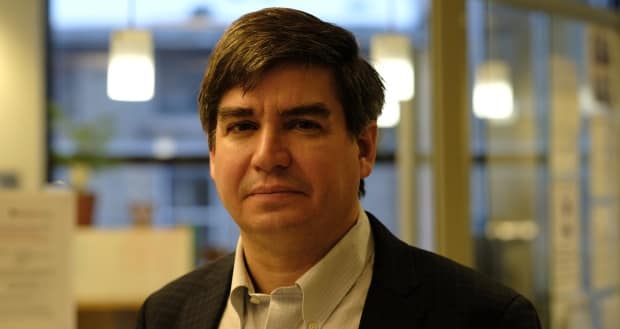
Despite the federal government's recent pledge to increase health funding to Canada's provinces and territories by $196.1 billion over the next 10 years, and to make "access to family medicine" a priority, Canada currently funds primary care at about half the level of many other OECD nations.
"Canada spends less on primary care as a percentage of its publicly funded health spending than many other countries," Dr. Green said. "It's about 5- to 7-per-cent for most Canadian provinces, compared to the OECD average of over 8 per cent and 10- to 12-per-cent in countries that have high-performing primary care."
When asked if the nationwide issues with access to family physicians means that the promise of universal health care in Canada is broken, Dr. Green pauses.
"I think it is," he replies after a moment. "If you don't have access to a family doctor in Canada, you can't access fully all of the benefits of our publicly funded health care system, because you don't have an entry point and you don't have someone to coordinate your care."
'I feel like I'm failing'
The problem is more than just the huge number of Canadians who don't have a family doctor – it's also the conditions family physicians work in because of the shortage.
In Verona, Ont., Dr. Sabra Gibbens has been the only family doctor in town for seven years. She takes care of 2,500 patients – that's double the usual number for a family physician.
The reason Dr. Gibbens has so many patients is that she essentially has two practices. When she arrived in town to replace a retiring doctor, the other doctor who was in Verona at the time also left.
"And so I decided to 'temporarily' take on the care of all of the other doctor's patients and then look for someone to replace him," she said.
"I had no clue that seven years later I would still be looking for a practice partner."
Being responsible for so many patients has taken a toll on Dr. Gibbens.
"It's a struggle. It's a lot. I'm not able to practice up to the standards that I was hoping to," she said.
"I'm so busy every day fighting fires and seeing people who are coming in and all the questions and whatnot," she said. "And things slip."
Dr. Gibbens says she gets reports from the Ministry of Health about how she stacks up against other doctors in her region, in terms of things such as immunizations, flu shots, colon cancer screenings and mammograms, and she says she falls short due to her workload.
"It hurts," she said. "I hate it."
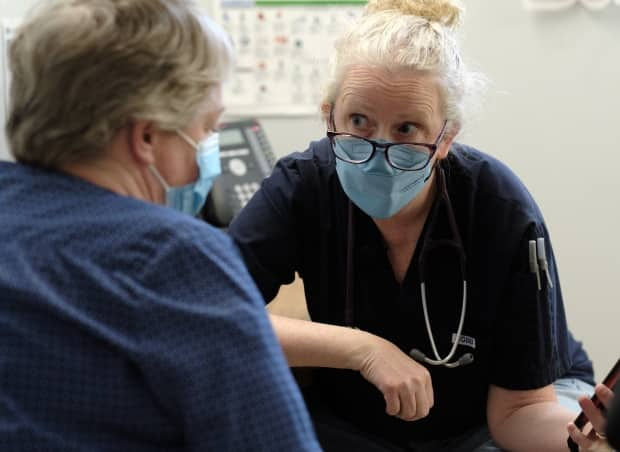
Even though Dr. Gibbens chose to take on so many patients, there are still people in Verona and the surrounding area without a family physician. She says there are days when her office gets as many as 25 calls asking if she can take on a new patient.
"And usually the answer is 'no,'" she said. "There are rare exceptions where we may take on someone, but for the most part, it's 'no' because we can barely take care of the people we already have."
Dr. Gibbens has hired a nurse practitioner, and she also brings temporary locum doctors to the clinic to help out – but in the end she is responsible for all 2,500 patients.
"There are people that call in and they want to be seen today. They have a pressing concern today," she said. "And I don't even know about it until I see them a month later, because I can't possibly hear about every single person that's calling in.
"I feel like I'm failing on a regular basis, that I can't meet those needs."
Dr. Gibbens says she won't give up. Medicine is a calling, she says, and she will keep working out of a duty and love of her patients.
Still, the job never leaves her.
"There are numerous times where I'll wake up in the middle of the night and I'll think about, 'Oh, did I remember to send off that CAT scan? Did I remember to send that referral? Did I remember to call that patient back?'" said Dr. Gibbens, explaining that the demands of her practice can be like trying to drink from a fire hydrant.
"There are lots of things I still love about my job. So I just focus on those."
Watch full episodes of The National on CBC Gem, the CBC's streaming service.


